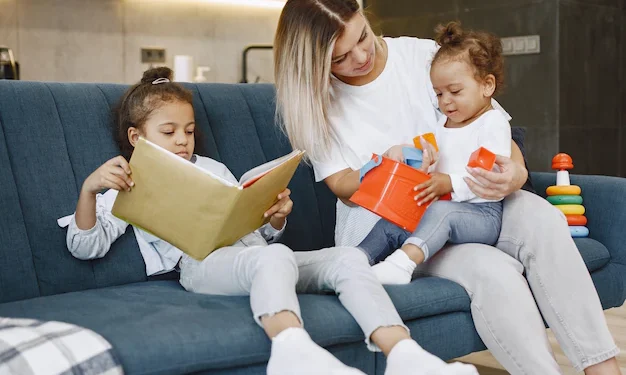Parent counselling can help strengthen your relationship with your child; it will also teach you how to deal with problems before they escalate out of control. Parent counselling can help put things back on track and save your relationship from drifting apart due to its stressful nature or challenging circumstances.
Parenting is one of the most difficult and rewarding experiences a person can have. To be a parent is to be an advocate for your child. You must constantly be there to support your child through their ups and downs and offer them guidance when needed. But, it’s not always easy being a parent. Many parents struggle with managing their own emotions, frustration with their children, and other issues that come up along the way.
As they grow older, teenagers begin to challenge everything they believed as a parent, testing their limits and seeing if they’re equipped to handle all of the changes that are coming up as they grow into adults. Parenting requires patience, skill, knowledge, practice, observation, and lots of self-reflection.
As a parent, you must learn how to react in different situations so that you don’t lead your child down the wrong path or make them feel inadequate by inadvertently pointing out their flaws or shortcomings.
What is parent counselling?
Parent counselling is a type of therapy in which a person (usually a psychologist or other mental health professional) works with parents to improve their relationships with their children. Some people call this type of therapy “parenting counselling” or “parent-child counselling.”
In parent counselling, parents work with a mental health professional to process the challenges of being a parent and how to resolve those challenges. Parents who are in counselling are encouraged to talk about their relationship with their children openly and honestly. This can be a scary thing, but it can also be an incredibly healing experience.
The benefits of parent counselling
- Better relationship with your child.
- Less parental stress.
- Less likelihood of parental conflict.
- Less likelihood of parental divorce.
- Improved parenting skills.
- More empathy for your child.
- Better ability to communicate with your child.
- A better understanding of your child.
- More patience. – A better way of managing emotions.
- Better insight into your child.
- Better ability to resolve conflicts with your child.
- A better way of managing your own emotions.

Who can benefit from parent counselling?
Anyone who struggles with issues related to parenting or who wants to improve their relationship with their child can benefit from parent counselling. Some examples of people who could benefit from parent counselling are:
A couple who is struggling with the transition from a child’s perspective from being a child to being an adult. A couple who is struggling with managing their own negative emotions. A couple who feels like they are not doing a good job at being parents or are feeling overwhelmed by their responsibilities. A woman who has been experiencing Post-Traumatic Stress Disorder after being raped or abused as a child.
A couple who is experiencing domestic violence. A teenager who is struggling with parental intrusion or is facing a traumatic transition to adulthood A couple who is experiencing difficulties with communication or sexual intimacy. A family member who is struggling with a parental role or who is concerned about a parental role. Anyone who feels like they are not doing a good job at being a parent.
How does parent counselling help?
If you are in parent counselling, you and your counsellor will work together to process the challenges of being a parent to gain a better understanding of yourself and your relationship with your child. This can help you to be a more effective and supportive parent.
You may also work on coping strategies for when you are feeling overwhelmed or frustrated. As you work with your counsellor, you may find that you can: Better understand your child. Better interpret your child’s moods and feelings. Better manage your own emotions.
Better communicate with your child. Better understand the communications your child has for you. Better understand your child’s feelings and thoughts about their life and themselves. Better manage your stress levels. Better understand the stress your child may be experiencing. Better understand your role as a parent. Better manage conflict with your family members. Better understand the role your family plays in your life.
Limitations of Parent Counselling
While parent counselling can be incredibly helpful for several people experiencing issues relating to parenting, there are some limitations to consider. For example, adult child counselling is best for children who are struggling with emotional or behavioural issues.
This type of counselling is best for children who are experiencing emotional or behavioural issues as these issues often need to be addressed more directly and immediately. Parent counselling is best for issues relating to the relationship between parents and children. Issues relating to a child’s relationship with their peers, themselves, or other adults may require other types of help.
Parent counselling is not a substitute for physical or behavioural discipline. Counsellors often recommend parents use positive reinforcement with their children rather than resorting to negative reinforcement with spanking.

Conclusion
Parent counselling is an incredibly valuable service for families. While it can help with a range of issues relating to parenting, it is most effective when it is paired with a parent who is also seeking help for their issues. When both partners in a relationship are working together to better understand themselves, it can make all the difference in the world.
Parent counselling can help strengthen your relationship with your child; it will also teach you how to deal with problems before they escalate out of control. Parent counselling can help put things back on track and save your relationship from drifting apart due to its stressful nature or challenging circumstances.







